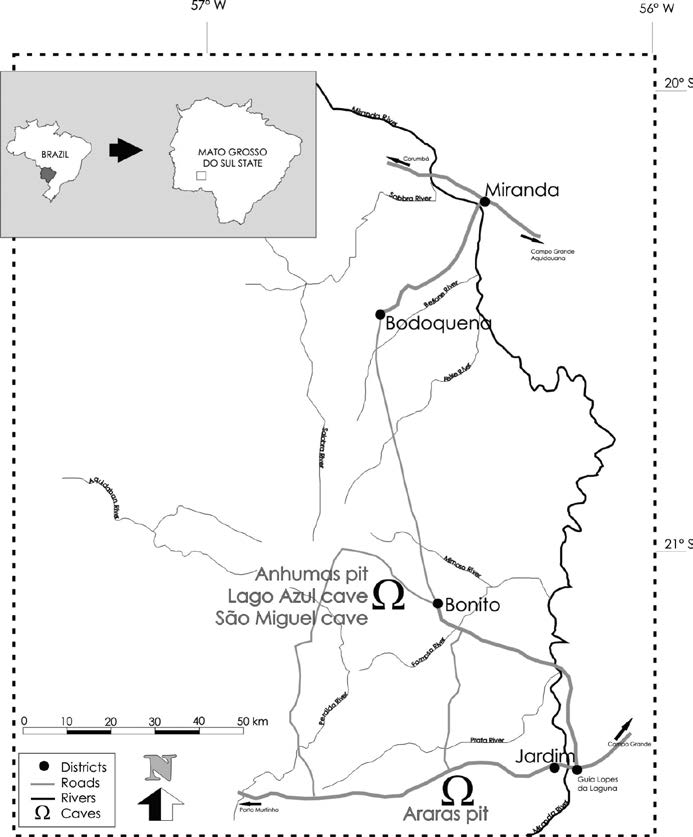Tourism in Caves and the Conservation of the Speleological Heritage:The Case of Serra da Bodoquena (Mato Grosso do Sul State, Brazil)
DOI:
https://doi.org/10.3986/ac.v38i2-3.127Abstract
The Serra da Bodoquena is the region in the state of Mato Grosso do Sul, Brazil in which the municipality of Bonito is located. This municipality is the primary calling card for tourism in the state and is one of the most developed areas of ecotourism and speleotourism in the country. The tourism there is entitled ecotourism, and is designed to be sustainable. The present case study focuses on the ecologically sustainable aspects of the speleotourism practiced there, especially the proposals for tourist carrying capacity adopted. The results and discussion provide suggestions for the adoption of a different formulation of carrying capacity focusing on both operational and quantitative aspects. Ecologically sustainable speleotourism in the Serra da Bodoquena should be possible as long as new proposals limiting visitation are adopted which conform to technical environmental management procedures and consider the interests of local stakeholders.
Downloads

Downloads
Published
How to Cite
Issue
Section
License
Authors guarantee that the work is their own original creation and does not infringe any statutory or common-law copyright or any proprietary right of any third party. In case of claims by third parties, authors commit their self to defend the interests of the publisher, and shall cover any potential costs.
More in: Submission chapter




